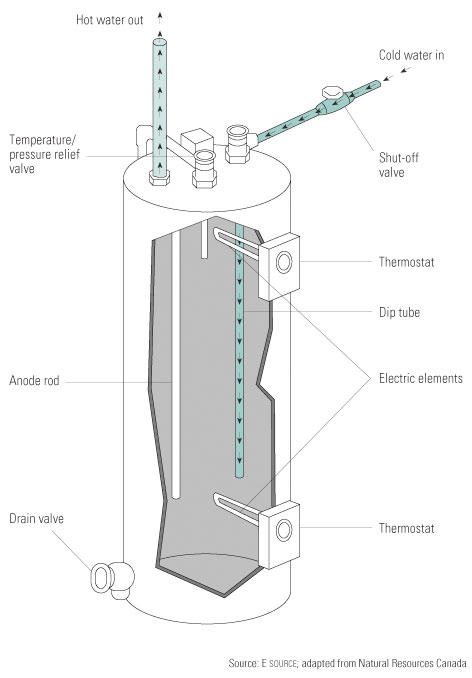
Image Credit: Natural Resources Canada
Twenty-five years ago, if you had predicted that I might be suggesting that electric water heating could be a good option, I’d have asked what you were smoking. I agreed with the argument that it’s dumb to use such a high-grade form of energy (electricity) for such a low-grade energy need—a need that can be satisfied with renewables, such as solar energy or wood heat. I was also aware—and still am—of the significant environmental impacts of many of our power-generation options.
But here I am, suggesting that electricity can sometimes be a pretty good option for water heating. What’s up?
Storage-type electric water heaters can make both economic and environmental sense if we can use off-peak electricity. Off-peak electricity—lower-priced electricity that is available from some utility companies at night—helps the utility company manage loads. It’s far more common for commercial electricity customers, but is also offered to residential customers by some utility companies, including by Vermont’s largest utility company, Central Vermont Public Service (CVPS). Green Mountain Power still has some customers with off-peak rates, but is not currently offering this option for new customers.
Offering off-peak power for customers who can “store” electricity as thermal energy (hot water) helps the utility company “level” electrical demand. Electricity demand is generally highest during the day or evening (especially in the summer with high air conditioning loads) and very low in the middle of the night.
Most utility companies have large “baseload” power plants that can’t be turned on and off quickly as demand rises and falls. Or they have a lot of baseload hydropower, as in upstate New York, generated from rivers that are always flowing. In either case, the utility company has these huge turbines spinning, and can’t turn them off.
During the daytime, electricity demand is much greater, requiring not only the baseload power plants and hydropower, but also “peaking plants”—smaller, usually gas-fired power plants that can be ramped up and down fairly quickly. These peaking plants use more expensive fuel and cost the utility company a lot more to operate than baseload hydro, coal, or nuclear power plants.
This is why many utility companies offer attractive pricing to entice customers to shift some of their electric loads to nighttime. In commercial buildings, it is increasingly common to put in “thermal energy storage” systems that use electricity at night to either chill water or make ice that can then be the source of daytime cooling for the building.
Off-peak water heating is similar. A fairly large (typically at least 80-gallon), well-insulated, electric water heater is hooked up to a separate meter that has a timer on it so that power can only be delivered during hours that the utility company specifies. CVPS offers two variations of off-peak water heating for residential customers: Rate 3 and Rate 15. These options differ by the number of hours that the utility limits power and in the steepness of the discount.
To use the CVPS example, the charges for standard residential electric service (Rate 1) include a service charge of 38.8¢/day and a usage charge of about 12.3¢/kilowatt-hour (kWh). Rate 3 and 15 both have a service charge of 21.1¢/day and usage charges of about 7.1¢/kWh and 5.4¢/kWh, respectively. Note that these special rates can only be used for water heating; customers also must have a standard meter and will pay the Rate 1 fees for their non-water-heating electricity. Thus, when using off-peak water heating, there will be two service charges.
With the most attractive off-peak rates, for which CVPS requires an electric water heater of at least 80 gallons, the customer pays less than half the kWh charge. Unless a customer’s hot water use is extremely low, the per-kWh savings from the lower rates will significantly exceed the cost of the extra service charge, and the homeowner will save money, compared with standard electric water heating. A homeowner with off-peak electric water heating may also save money compared with using a gas-fired water heater (especially if propane) or heating water with a gas- or oil-fired boiler used for space-heating (see last week’s column). If oil and propane prices go back up to where they were a year ago, off-peak electric water heating could be significantly cheaper.
The downside to off-peak electric water heating is that you can run out of hot water. If you use too much hot water during the on-peak period when electricity isn’t available to your water heater, you’ll use up the hot water in your tank. Because the tank remains “thermally stratified,” the hot water you get out of it when you’re nearly out of hot water will be almost as hot as the water you get when the tank is fully charged. But once you use it up, it’s gone until the off-peak meter allows electricity to flow again. So it’s good to know—and perhaps modify—your usage patterns before signing on to this system.
Although most utility companies don’t currently offer off-peak (sometimes called “time of use”) pricing, that may be changing. A key aspect of the oft-touted “smart grid” would be a variety of sophisticated demand management and pricing mechanisms designed to even out power production. Included in these options could be “real-time pricing,” in which your electricity prices would vary hour-by-hour depending on what it costs the utility company to generate the power, and “dispatchable” or “interruptible” loads that the utility can turn off and on remotely to help them manage loads.
Eventually, there are likely to be a many new options for managing our electricity use, and electric storage water heaters will offer one of the best ways for homeowners to take advantage of some of these features. While solar water heating is even better (with a good site), off-peak electric water heating costs a lot less to put in and can make sense in some situations.
Weekly Newsletter
Get building science and energy efficiency advice, plus special offers, in your inbox.





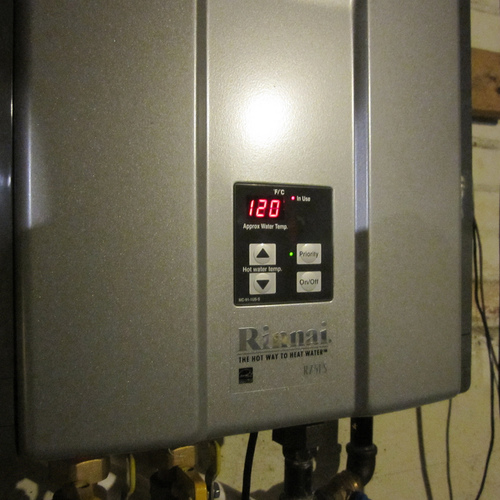
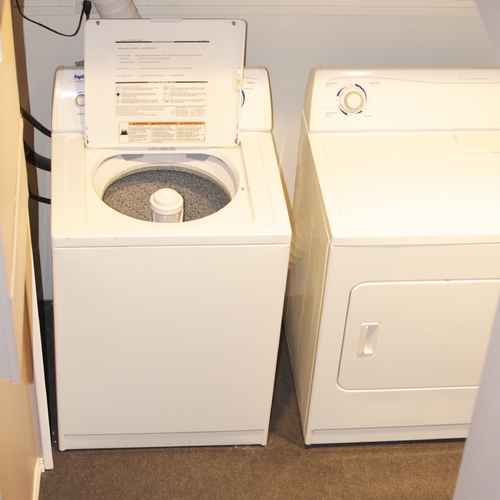
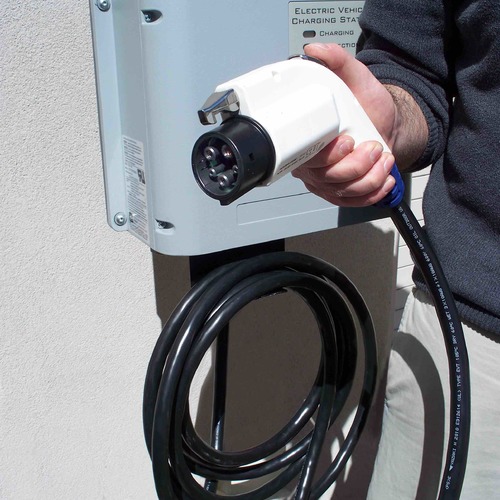
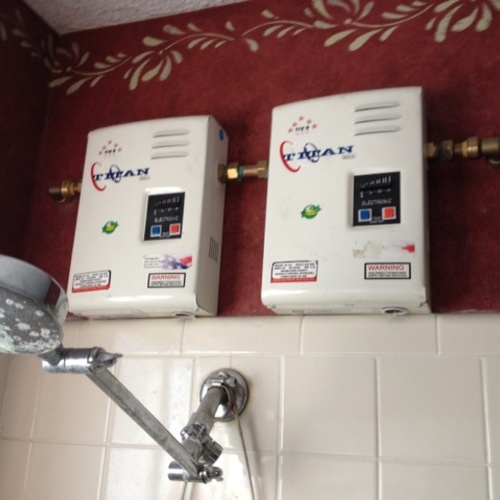






4 Comments
Environmental benefit?
There is clearly a strong economic benefit (for both the consumer and power producer), but what's the environmental benefit?
Environmental benefit of off-peak
Great question, John. In the July feature article of Environmental Building News (companion publication to GreenBuildingAdvisor.com), which is soon to go to the printer, I wrote a feature article on thermal energy storage--making ice during off-peak hours and using that ice for cool buildings during the day. I get into this question in detail in that article. There have been a number of studies showing reduced pollution emissions and reduced source-energy use in switching from daytime to nighttime electricity use, but most of these studies have been in California, which is not necessarily typical. It all depends on the utility company. If the baseload power is mostly hydro and nuclear, while peaking plants are gas and oil (such as in upstate New York state), then switching to off-peak will result in reduced emissions. If the baseload is mostly coal and peak power is provided by hydro and gas, then the peaking power is cleaner. On average, from what I've read, off-peak power has lower environmental impact than on-peak. EPA and DOE are working on efforts to collect this data to better inform this sort of power planning. -Alex
Efficient electric Units?
What would one look for to get an electric water heater that is most efficient? Specific features, specific models? The units I've seen at local vendors don't look like they will last or are particularly well insulated.
Efficient electric water heaters
Donald, take a look at Marathon water heaters: http://www.marathonheaters.com.
Log in or create an account to post a comment.
Sign up Log in